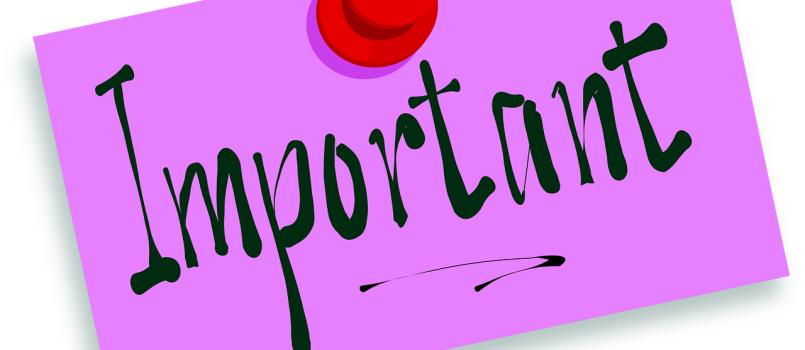
5 things to know about parenting a child with a rare disease
This article was first published on the Share4Rare website which has other great articles and highly recommended reading. Permission was sought from the author to re-publish for our community.
by Omaira Gill – on Twitter here
Having a child with a rare disease takes venturing into the unknown and unchartered landscape of parenthood to new, dizzying heights, so here are five things you should know.
Becoming a parent is a challenge and a new chapter for anyone, no matter what the circumstances. There are so many new things to learn, experience, get the hang of and deal with. Add a rare disease into the mix, and it becomes even more bewildering! You may find these tips useful:
1. Do not be shy about knowing more than your doctor
Welcome to the world of rare disease parenting! The first thing you will realize when you get a diagnosis (and in some cases, when you do not get one and are simply tucked into the rare disease box with the rest of us) is that doctors try their very best, but with the pressure on their own time, they cannot cover every single base. A good doctor will appreciate your feedback and will put your child’s needs ahead of their own agenda. Information will be your best ally on this journey, so do not feel embarrassed or shy about reading up and getting ahead of your doctor with trustworthy research and information. But this last part about the research being trustworthy is an important one, and brings me to point number two.
2. The internet is a mixed bag of great and not so great information
The internet is a great tool for educating yourself, but make sure you know what it is you are reading. Where did the information come from, who wrote the paper and who paid for the research are all important things to keep an eye on when you are reading about your child’s condition. Be aware also that the internet does not automatically update as events move – the information you are reading today about prognosis and life expectancy could already be several years out of date. So use the internet wisely to make sure you avoid questionable data, fake pieces of information, baseless therapies that will make your child smell amazing but do little else, and a lot of unnecessary mental anguish.
At the same time, do not feel bad about telling people “Just Google it” when you find yourself getting worn out by explaining your child’s condition again and again. We have ahead of us a marathon and not a sprint, and sometimes explaining your child’s condition and symptoms can feel like you are a broken record. It is fine to switch off and let others do a bit of their own homework.
3. This will be the most daunting experience of your life, and also the most rewarding
Nothing puts life into perspective like finding out that your child has a rare disease. Overnight, your life plans and priorities change, and it goes without saying that things are never going to be the same. But, at the same time, despite all the challenges, obstacles and heartache, the diagnosis does not mean that they have to be worse. In my experience, my child’s diagnosis broke my heart but also made me re-examine my life completely. The result was that we as a family find joy in simple things, and a good day for our rare disease child means a good day for all of us. You will sit down at the end of the day, exhausted and fed-up, and a small expression of love from your child quickly reminds you why you are doing it all. Life becomes more complex and at the same time very, very straightforward, because you have less free time to get upset over the small, mundane problems of ‘normal’ life.
4. Beware of everyone who will claim to have the magic cure
One of the first strange experiences that I had when my son was diagnosed with Duchenne muscular dystrophy was the number of snake oil peddlers who emerged from every nook and cranny, claiming that they had the key to making my child better or easing his symptoms. In the early days, desperate for a miracle, I threw a lot of money away on therapies that were a waste of time and had no medical basis or proven benefit, because it made me feel like I was doing something. Mostly, it ended up being my way to face a condition with no therapy or cure – it made me feel like I was at least going through the motions of helping my child. When I realized this, I stopped.
Unless there is solid medical evidence of the benefits of the therapy, or at least evidence that it will do no extra harm to your child, go ahead, but be aware that scamming the parents of sick children is practically an industry on its own, and when you are desperate, it can sound very attractive. That’s not to say all alternative therapies are pointless. One positive experience I had in this respect was a stranger who, upon hearing our story, offered to do some energy therapy with our son and me and refused payment. It did not do my child any harm, calmed my nerves and in the process we made a new friend who we are still in touch with.
5. Find your tribe and remember that you are not alone
Loneliness is a real issue in rare disease life. Very often, we are given the diagnosis and sent off, being told to have as good a life as we can. After all the medical interventions, checkups and running from doctor to doctor, suddenly a vast, empty space opens in front of you with no direction. You are sent on your way with few instructions and most of the time with practically no psychological or emotional support. Those first few days and weeks are a desolate and very lonely place. But remember that no matter what, you are not alone. Even if your child’s condition is so rare that there is no established community for their specific condition, the rare disease community is here for you, to listen and support you. We understand the place you are in and each one of us is a member of the rare disease tribe. We understand if at first it is too much for you to approach us. Take your time. We have been there. And once you decide to do so, we are here to get you through whatever comes next. Come and find us!
Closing thoughts
As Omaira said, the rare disease community can help you overcome your fears, sadness and frustration. Join Share4Rare and get in touch with other parents like Omaira that will be more than eager to give you advice, listen to your problems or just, you know, be there. Register and find your tribe!
About the author: Omaira Gill ( @OmairaGill on Twitter) is a journalist living and working in Athens (Greece), where she is raising her family. Her older son was diagnosed with Duchenne muscular dystrophy in 2012.




